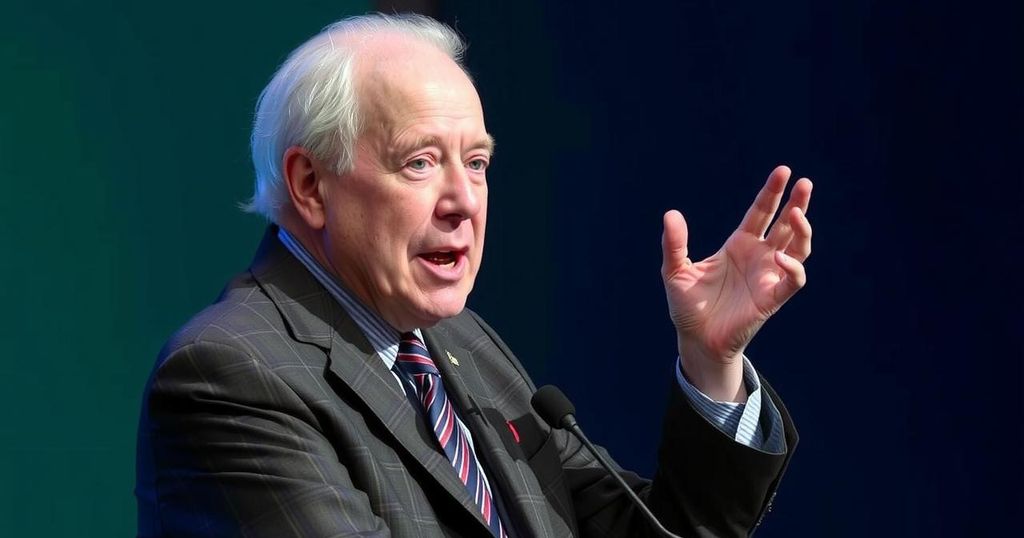President Joe Biden will not attend COP29 immediately following the US elections; the US delegation will be led by John Podesta. This absence may impact US engagement in major climate discussions, which focus on financing for vulnerable nations. The event coincides with the G20 leaders’ summit, highlighting potential coordination challenges in addressing global climate efforts.
President Joe Biden will not be attending the pivotal COP29 climate summit scheduled to commence shortly after the upcoming US elections. This decision was disclosed by an unnamed source familiar with the situation who lacked authorization to comment publicly. Instead, John Podesta, a senior advisor on international climate policy, will lead the US delegation. The delegation will also include prominent federal officials such as Agriculture Secretary Tom Vilsack, Energy Secretary Jennifer Granholm, and National Climate Adviser Ali Zaidi. While US presidents do not traditionally attend these annual UN summits, Biden has utilized his appearances at the 2021 and 2022 summits to reaffirm the nation’s commitment to global leadership in combating climate change, a focus diminished during the administration of former President Donald Trump. Even in cases of absence, national leaders can convey messages through virtual formats or recorded statements. The timing of this year’s summit coincides with the US elections, potentially overshadowing discussions in Baku, Azerbaijan. Nearly 200 nations are expected to deliberate on the crucial issue of financial support from developed countries to assist vulnerable nations in addressing climate change repercussions, with estimates indicating that trillions of dollars will be essential to help developing countries achieve their climate objectives. Trump, the Republican presidential nominee, has indicated intentions to withdraw from the Paris Agreement once more. This marks the second consecutive year President Biden will skip these talks, having delegated the responsibility to Vice President Kamala Harris at last year’s summit in Dubai. Additionally, the COP29 event overlaps with the Group of 20 leaders’ summit occurring on November 18 and 19 in Rio de Janeiro, Brazil. A standing climate finance commitment of $100 billion annually is set to last until 2025, yet negotiators are eager to formulate commitments extending into the next decade, with US and other developed nation officials seeking to broaden the contributor base to include China.
The COP (Conference of the Parties) is the supreme decision-making body of the United Nations Framework Convention on Climate Change (UNFCCC). Each year, representatives from nearly 200 countries convene to negotiate agreements focused on combating climate change and its impacts. The COP29 summit is particularly significant following a period where US commitment to international climate agreements fluctuated under different administrations. With the recent emphasis on re-establishing US leadership in climate discussions, Biden’s absence may signal challenges in addressing both domestic political priorities and international climate commitments. This year’s summit will center on achieving substantial financial support for developing countries, highlighting the urgency and complexity of global climate negotiations amidst shifting political landscapes.
In summary, President Biden’s decision to forgo attendance at the COP29 climate summit underscores the complexities and political implications of addressing climate change within the context of a US election. With a focus on financial commitments to support developing nations, this summit presents a critical opportunity for international collaboration. The absence of the president may have repercussions for the United States’ position in global climate discourse, particularly as discussions unfold regarding significant funding and commitments for the future.
Original Source: www.energyconnects.com






